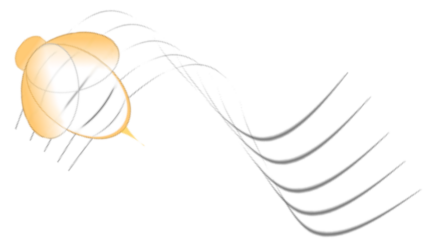Lakewarm Twilight
by Susanne Daumann
Erl, July 16 2023 - After Siegfried, tonight’s performance of Götterdämmerung closes the Ring Cycle directed by Brigitte Fassbaender and conducted by Erik Nielsen. Yet again in the theatre that is normally home to the local Passion Plays, and where the absence of orchestra pit and stage machinery make things difficult for set designers and stage directors. The stage is black and practically empty, a balcony and stairs sometimes add a dimension (and let us give thanks to the stage hands here, who have to haul the heavy stuff around by bodily force as can be witnessed during intermissions); a few items of furniture and some props indicate where the action is taking place.
Act I, with its retrospectives and the preparation of future intrigues, is told by Wagner in a slow and somewhat redundant manner, and the staging and musical interpretation do not add any drive or punch to the narration. We have a few entertaining ideas, a few gags: the Norns are three colourful young women having a knitting-and-coffee-party; Siegfried is still a good-natured country boy, he throws his sword on Gunther’s billiard table and Gunther rushes to see whether his holy felt is still intact. All this is not enough to fill the empty spaces. Vincent Wolfsteiner, who was quite credible in Siegfried, as a teenage rebel in search of himself, doesn’t come across as the glamorous hero he is supposed to be. Sure enoug, he is a mature man, somewhat stout and clumsy, which makes him look rather comical sometimes. His Siegfried is a thoroughly nice guy, a bit naive and pretty gullible, but not the glorious sexy hero with whom a woman like Gutrune would fall in love at first sight.
Lots of empty black space to look at, a minimalist set, a heavy and slow narration, and the conductor and orchestra who seem to be falling asleep at times - this first act is neither convinced nor convincing. It is Robert Pomakov, interpreter of the villanous Hagen, who keeps everything alive with his tremendous stage presence and strong bass.
Act II is livelier: Hagen’s ploys manage to create some suspense. Gunther appears little by little as the most tragic victim, since his worth as man, husband, and lover is being questioned. Manuel Walser, with his melodious lyrical barytone, is quite touching in the role. He is white of face and hair, his own ghost as it were. His sister, Gutrune, sung by Irina Simmes, is not clearly defined as a character, she is just another pawn in Hagen’s play. On the other hand, Christiane Libor as Brünnhilde comes across as strong and convincing here.
Act III, alas, loses the drive again. After the first scene where the Rhine daughters have taken the appearance of a water polo team and their singing evokes balls and bubbles, heaviness sets in again. Siegfried’s murder and death do sound beautiful, but they don’t strike any inner chords. Even the funeral pyre and Brünnhilde’s final address lack intensity: it’s the end of a world, the end of the reign of the Gods that were thought to be eternal and the world should be crumbling around Brünnhilde as the mountains are crumbling not far from here and they were thought to be eternal. This is beautiful and strong, but there is no sentiment of urgency and drama.
It has been a grey and sultry day: let’s hope that the next performances will benefit from clearer weather and renewed energy.


